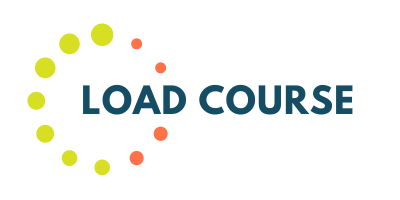PyQuant News – Python for Quant Finance
$1,000.00 Original price was: $1,000.00.$16.00Current price is: $16.00.
See all our reviews
PyQuant News – Python for Quant Finance
Introduction: Why Python is Essential for Modern Quantitative Finance
Are you looking to leverage the power of Python for quantitative finance but unsure where to start? In today’s data-driven financial markets, Python programming skills have become indispensable for traders, analysts, and finance professionals seeking to:
- Advance your career in quantitative finance and algorithmic trading
- Generate passive income through automated trading strategies
- Significantly improve your trading performance with data-driven decisions
While many resources teach general Python programming, PyQuant News specializes exclusively in applying Python for quant finance applications — bridging the gap between theory and real-world implementation that many finance professionals struggle with.
The Challenge: From Python Basics to Quantitative Trading
For many finance professionals, the path from understanding basic Python to implementing sophisticated quantitative trading strategies remains unclear. You recognize the tremendous potential of Python’s ecosystem for finance, but face challenges navigating:
- Complex financial modules and libraries
- Integration with market data sources
- Backtesting methodologies and statistical validation
- Risk metrics calculation and portfolio optimization
- Automated execution systems and trade management
📗 PROOF OF COURSE:
Our Comprehensive Python for Quant Finance Curriculum
Module 1: Python Fundamentals for Financial Applications
Fast-track your Python learning with a focused curriculum designed specifically for quantitative finance applications. No unnecessary complexity—just the essential Python skills finance professionals need to get started quickly.
Module 2: Mastering the Python Quantitative Stack
Develop proficiency with the core Python libraries for quantitative finance, including Pandas for financial data manipulation, NumPy for numerical analysis, and Matplotlib/Seaborn for financial visualization—essential tools for working with market data effectively.
Module 3: Algorithmic Trading Framework Development
Learn how retail traders can successfully compete using Python automation. Acquire a systematic framework for developing trading ideas, implementing robust backtesting methodologies, and executing strategies efficiently in live markets.
Module 4: Scientific Approach to Backtesting
Understand why conventional backtesting approaches often lead to financial losses. Master the scientific method for strategy validation, including walk-forward analysis, out-of-sample testing, and avoiding common pitfalls that lead to misleading backtest results.
Module 5: Professional Alpha Factor Engineering
Access the same factor engineering techniques used by institutional money managers. Learn to identify, test, and implement alpha factors while effectively managing portfolio risk through sophisticated hedging strategies.
Module 6: Advanced Strategy Optimization with VectorBT
Implement high-performance backtesting capable of simulating millions of strategy variations. Get hands-on experience with VectorBT, the cutting-edge vectorized backtesting library that dramatically accelerates strategy development and optimization.
Module 7: Comprehensive Strategy Backtesting with Zipline Reloaded
Build sophisticated factor pipelines for screening and ranking over 21,000 equities. Learn to construct and backtest institutional-quality factor portfolios using the industry-standard Zipline Reloaded framework.
Module 8: Institutional-Grade Risk Analytics
Master professional risk assessment and performance analysis using PyFolio and AlphaLens. Learn to quantify strategy performance through advanced metrics including Sharpe ratio, CVaR, factor attribution, and alpha decay analysis.
Expert-Led Learning Experience
This comprehensive course combines theoretical knowledge with practical implementation, ensuring students gain job-ready skills in quantitative finance. Each module includes:
- Real market data examples
- Industry-standard code implementations
- Professional-grade analytical frameworks
- Hands-on projects with live trading scenarios
Who Should Enroll
Ideal candidates for this Python quantitative finance course include:
- Financial professionals seeking technical skills advancement
- Retail traders wanting to systematize trading approaches
- Data scientists transitioning to financial markets
- Students pursuing quantitative finance careers
- Portfolio managers requiring Python automation skills
Conclusion: Transform Your Financial Decision-Making with Python
PyQuant News – Python for Quant Finance provides the structured pathway finance professionals need to harness Python’s full potential for quantitative analysis and algorithmic trading. Our curriculum bridges theoretical concepts with practical implementation, delivering the specific Python skills for quant finance that will differentiate you in today’s competitive financial landscape.
Whether you’re a trader seeking to automate strategies, an analyst looking to enhance your quantitative skills, or a finance professional aiming to leverage data science for better decisions, our focused approach eliminates the confusion and accelerates your journey from Python basics to sophisticated quantitative applications.
Join thousands of finance professionals who have transformed their approach to markets through our specialized Python for quant finance training.
After you make payment, we will send the link to your email then you can download the course anytime, anywhere you want. Our file hosted on Pcloud, Mega.Nz and Google-Drive.
We provide a download link including full courses as my description. Do NOT include any access into Groups or Websites!
LOADCOURSE – The Difference You Make
More Courses: Business & Sales
Q & A
Related products
Business & Sales
Business & Sales
Business & Sales
Business & Sales
Business & Sales
Business & Sales
Business & Sales
Business & Sales















Reviews
There are no reviews yet